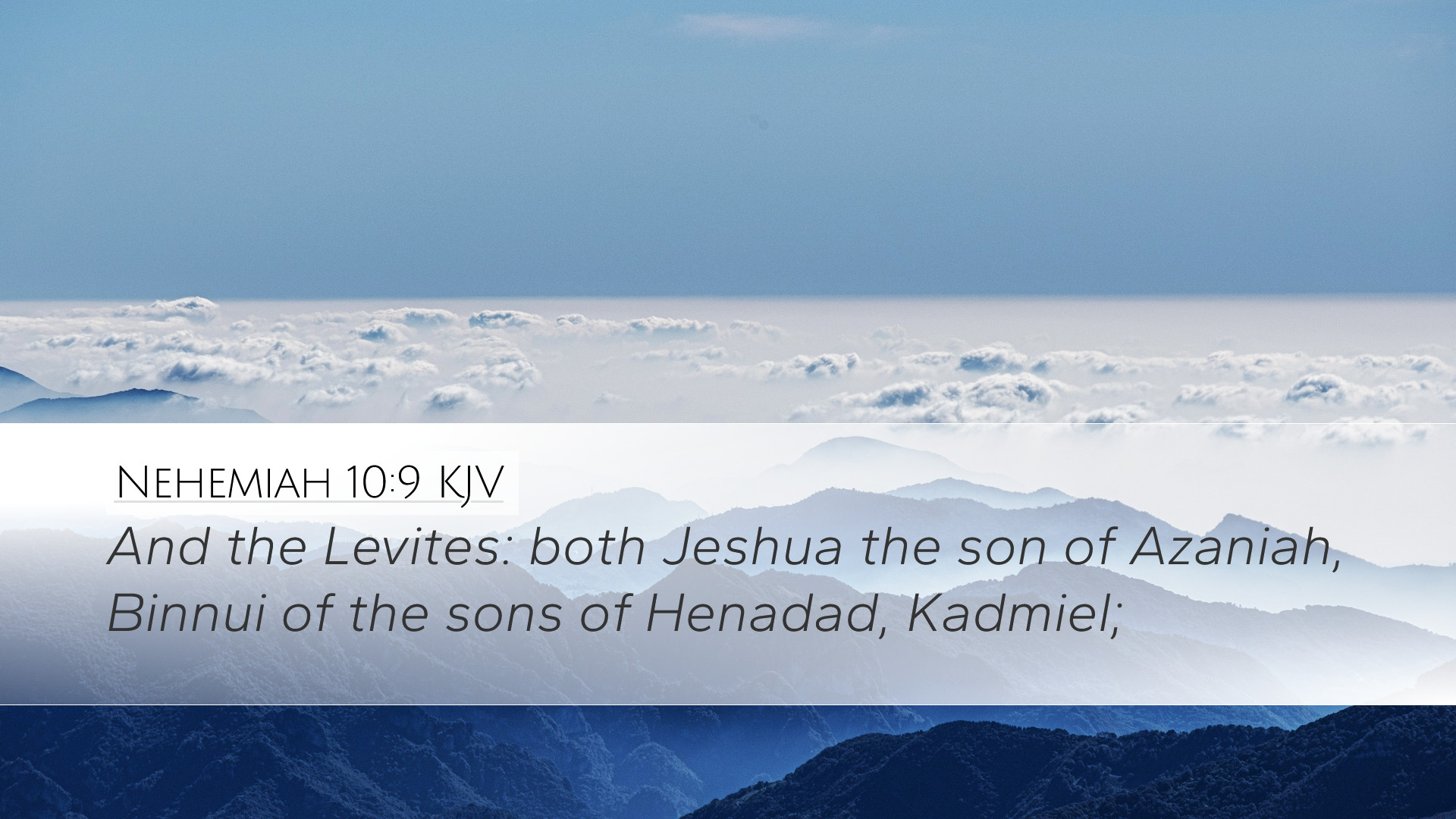Commentary on Nehemiah 10:9
Verse Context: Nehemiah 10:9 states, “And the leaders of the people, including the priests and Levites, took upon themselves a curse and an oath to walk in God’s Law, which was given by Moses the servant of God, and to observe and do all the commandments of the Lord our Lord and His ordinances and His statutes.” This verse is part of the confessional episode of the returned exiles as they commit to a covenant with God.
Exegesis of the Text
The verse begins by identifying the leaders of the people, stressing the collaborative responsibility of various roles in this covenant. The commitment to the Law emphasizes the seriousness of their dedication to divine statutes. This was a pivotal moment for the community, reestablishing their identity after exile.
The Role of Leaders
Matthew Henry asserts that the leaders played a fundamental role in the spiritual revival of the people. Their willingness to be the first to commit to God’s standards reflects the weight of leadership and the impact it has on collective worship. By representing the people, they modeled accountability and fervor for the Law, creating a ripple effect among the rest of the community.
The Curse and the Oath
Albert Barnes comments on the concept of the curse and oath, highlighting how it was customary in ancient Israel for contracts or covenants to be sealed with an oath. The curse signifies the seriousness of not adhering to the commandments. It implies that the leaders understood the potential consequences of their unfaithfulness to God’s law—spiritual and communal repercussions. The imprecatory element serves as a deterrent against future disobedience.
The Nature of God’s Law
Adam Clarke emphasizes that the Law mentioned is divinely mandated through Moses, reflecting continuity in God’s covenantal promises and instructions. The historical context places importance on the Mosaic law as a sacred instruction that defined their identity as the chosen people. Clarke highlights the intention behind the law—it was to guide the people towards holiness and community order.
Theological Implications
This verse demonstrates several profound theological concepts:
- Covenant Commitment: The leaders' vow reflects a renewed covenant relationship with God, suggesting the necessity of a collective commitment to ethical and spiritual conduct.
- Accountability: The public nature of the oath indicates that leaders are called to a higher standard and should lead by example. The implication is profound; leadership carries with it the responsibility not just to their own lives, but to the people under their care.
- Continuity of God’s Word: This moment illustrates the significance of the Torah in Israel's life and the assurance that God’s laws transcend generations. The commitment to follow ‘all’ commandments signifies a holistic adherence to divine instruction.
Practical Applications
Reflective Leadership: Pastors and community leaders should remain aware of the weight of their actions and commitments. Just as the leaders in Nehemiah's time modeled faithfulness, modern leaders are called to receive and impart spiritual disciplines.
Community Engagement in Covenant: The verse encourages congregations to actively engage in their covenant relationship with God. This can be expressed through community decisions, public commitments, and accountability to one another in observing God’s commandments.
Seriousness of Commitment: The notion of an oath reminds believers today that following God is serious. This invokes a level of self-examination concerning areas of rebellion and the need for return to God’s ordinances.
Conclusion
Nehemiah 10:9 provides rich insight into the dynamics of leadership, community responsibility, and the immutable nature of God’s commandments. As leaders and members of the church reflect on their collective commitment to live by God's statutes, they can find encouragement in the shared journey of faith as a community, recognizing the weight of their covenant with God and the call to live in fidelity to His truth.


